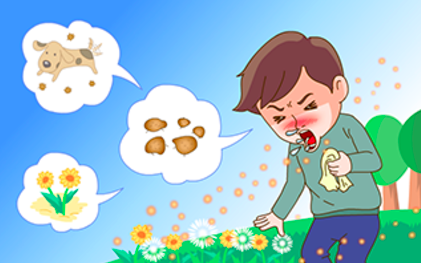
Allergy
독일어로 과민 반응이란 뜻으로 특정한 물질과 접촉하거나 먹었을 때 나타나는 특별한 반응을 말한다. 세균이나 바이러스와 같은 외부 물질을 방어하는 면역 반응으로 인해 나타난다. 보통 먼지 진드기, 꽃가루, 땅콩, 화학 물질 등이 원인이 되며, 재채기, 콧물, 가려움, 숨쉬기 곤란, 두드러기 등 다양한 반응을 보인다. 현대 사회에서 인공 화학 물질이 증가하면서 알레르기가 심해지고 있다.
Allergy, which means hypersensitive reaction in German, refers to special reactions showing up when you touch or eat specific items. It serves as the immune system’s reaction to block external materials such as germs or viruses. Allergy usually comes from dust mites, pollen, peanuts, and chemical products, and displays a variety of reactions such as sneezing, nasal mucus, itching, trouble in breathing, and hives. As artificial chemical products continue to grow in number in this modern society, cases of allergy become worse.
○ 예문
– 그는 심한 알레르기 체질이어서 봄만 되면 꽃가루나 먼지 때문에 괴로워한다.
– 복숭아를 먹고 난 후부터 온몸이 가려운 걸 보니 복숭아 알레르기인 것 같다.
○ Examples
– As he has a severe allergic constitution, he suffers allergic reactions from pollen or dust in spring.
– Considering that I feel itchy all over after eating peach, I think I am allergic to it.
Leave a comment